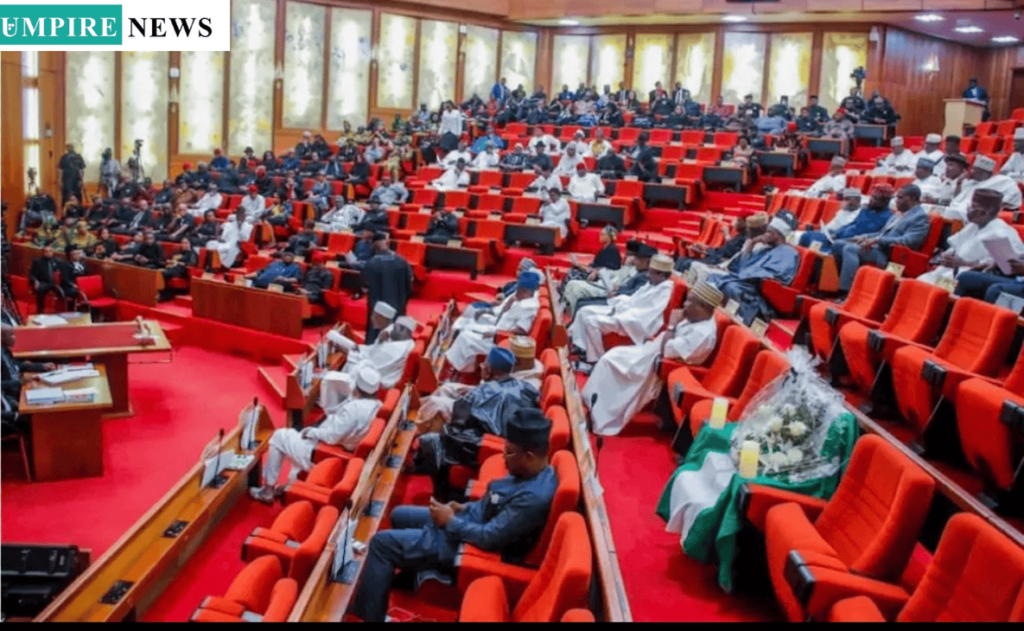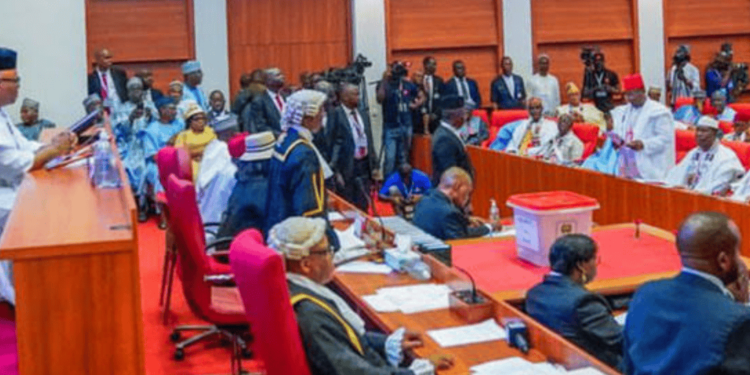On Wednesday, the Nigeria Senate called upon the Federal Government to officially declare a State of Emergency regarding the protection and welfare of the girl-child in the nation.
This urgent measure is seen as essential to effectively influence and secure a brighter future for the country.
Additionally, the Senate urged those state governments that have not yet adopted the Child Rights Act to take immediate action in doing so.
This adoption should also encompass the elimination of harmful traditional practices, notably female genital mutilation, which pose risks to the well-being of girls.

To ensure compliance and oversight, the Senate has instructed its committee on legislative compliance to actively monitor the implementation of laws and policies aimed at protecting the rights and welfare of the girl-child.
These resolutions were prompted by a motion brought forward by Senator Ireti Kingibe (LP, FCT).
The motion, which was titled “The Plight of the Nigerian Girl-Child and the Need for Urgent Intervention by the Federal Government to Save the Future of Our Girls,” highlighted the severe challenges faced by girls in Nigeria.
Senator Kingibe expressed deep concern over the staggering statistic that Nigeria is home to over 10 million children who are out of school, with the girl-child being disproportionately affected by this crisis.
According to her, the 2020 report from UNICEF reveals that girls make up more than 60% of this out-of-school demographic. This troubling issue is compounded by various factors, including cultural barriers, security threats, and economic hardships, particularly in rural and conflict-affected regions.
Furthermore, she noted that incidents of gender-based violence—ranging from rape to child trafficking and various forms of physical abuse—are on the rise throughout Nigeria.

Such violence has been reported in all six geopolitical zones of the country, often met with inadequate legal protection or recourse for the victims.
This situation leaves many girls exposed, stigmatized, and without the support they need.
Senator Kingibe also expressed her dismay regarding the prevalence of child marriage in Nigeria, particularly in the northern regions where the statistics are alarmingly high.
She stated, “According to the 2018 Nigeria Demographic and Health Survey (NDHS), over 44% of girls are married before the age of 18, with high percentages in states like Zamfara, Bauchi, and Sokoto.
“Child marriage deprives girls of their right to education, health, and a safe childhood, trapping them in cycles of poverty and oppression.”
She emphasized that each of Nigeria’s six geopolitical zones faces distinct yet equally pressing challenges concerning the welfare of the girl-child. In her address, she cited real-life scenarios that highlight the urgency and gravity of the situation.
She asserted that the government at all levels must adhere to the mandates established by Section 17(3) of the 1999 Constitution of the Federal Republic of Nigeria.
This section explicitly states that children should have equal access to educational opportunities and that the state has a responsibility to protect vulnerable individuals from exploitation and abuse.
“Therefore,” she stressed, “the government must take decisive action to fulfill these obligations.”





































